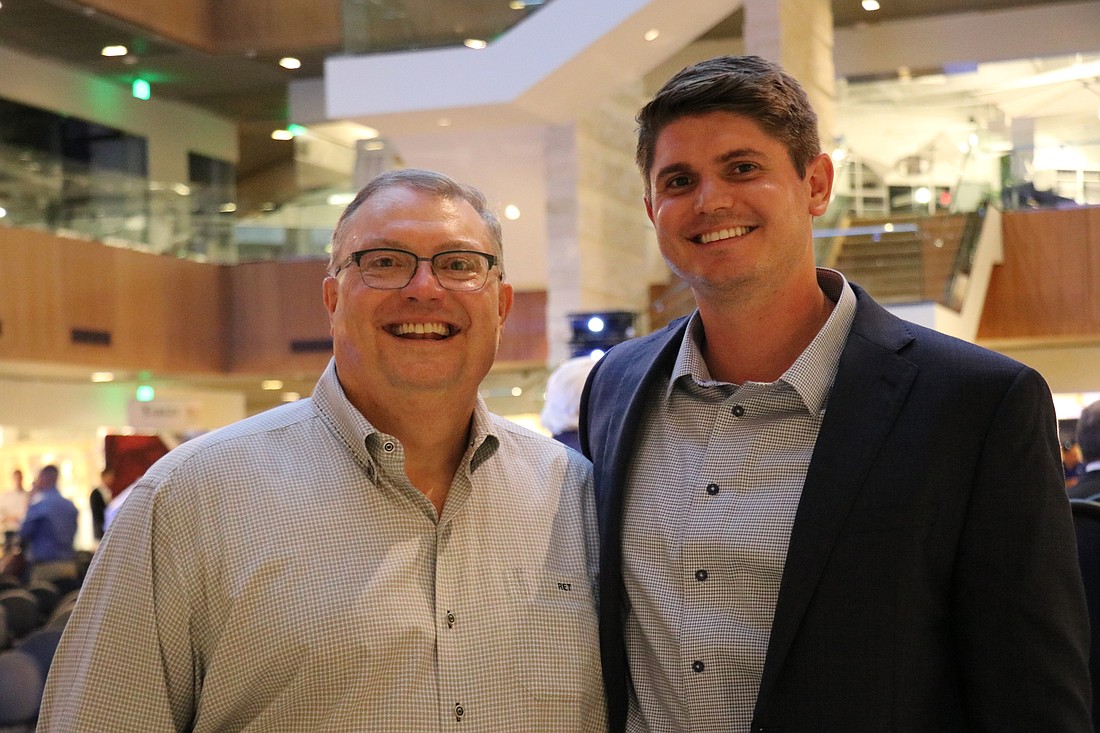- April 1, 2025
-
-
Loading

Loading

As a family business consultant, I have guided dozens of family businesses through the succession process.
It can be a difficult and sometimes emotionally painful process but, if done right, can satisfy the wishes of all parties, successfully prepare the business to meet future challenges, and most importantly, keep the family together. The “family” component of the family business is one I emphasize throughout the process. A successful family business succession should benefit both the business and the family.
I recently concluded a three-year succession planning engagement with LSI Cos. Inc. — a full-service real estate brokerage and development firm based in Fort Myers. Working with founder Randy Thibault and his son, CEO Justin Thibault, as well as other key managers and stakeholders in the company, we were able to successfully guide the transition of leadership from Randy to Justin — and keep the family happy in the process. Randy and Justin were willing participants and amazing partners throughout the journey, but even a successful succession is rarely easy. I sat down with Randy and Justin to ask them about their experience and what advice they would offer to other family business owners preparing for a succession. Edited excerpts:
Randy: Letting go of my identity. The emotions that came up when discussing the terms of the sale and transition to Justin.
Justin: I think trying to separate how I would normally handle a business problem and how my father would handle it. We have two very different styles, yet we are similar in our values and goals.
I learned that this type of endeavor — just like selling a large deal — has a natural flow and needs to be organic. It takes time and patience. Randy Thibault, LSI Cos.
Randy: Getting the acknowledgement from Justin that he wanted to carry on the business. Seeing him succeed and knowing how great he will be in his new role.
Justin: Learning that my dad had the confidence in me to continue what he started.
Randy: I don’t regret much! I am so glad we had professional advice from both a family business advisor and an industry business consultant to help facilitate the difficult conversations and put things in perspective. I learned that this type of endeavor — just like selling a large deal — has a natural flow and needs to be organic. It takes time and patience.
Justin: If I had to do it again, I would spend less time on the minutia and focus more on the big picture. I’d make it less of a “business” negotiation and realize earlier that I was dealing with a family “partner.” I’d keep top of mind that this is my dad, and this succession is an opportunity, not an obligation.
Randy: One, make sure you don’t do it on your own. Utilize the professional guidance that is available to you. Two, know your parameters and what motivates you — is it control? Money? Also, be sure to ask yourself the hard questions and understand what you truly want the outcome to be.
Justin: Make sure you keep your relationship with your family at the forefront. If you think the process is harming your family, STOP. From an adult child’s perspective know that what you are buying is a legacy — the hard work, blood, sweat and tears of your parents. Always remember that.
Randy: I didn’t look at it as if I sold the business. What I did was offer Justin an opportunity to continue what I had started. I had to ask myself what I really wished for, and that’s when the light bulb went off. I realized it was about much more than the money — that I was ready for a life outside of my business. After that, things just fell into place. I wish I had done it three years earlier!
Justin: It came together in bits and pieces. It wound up (being) positive and fun. I did approach it at first as a business situation, but then was able to step back and put it all into perspective.
Randy and Justin’s story is a familiar one in family business succession planning. It can take a while to work through the details and gain perspective, but when all parties do, the process becomes exciting and successful. When done right, the process should take years, not weeks or months. And it should include clear goals that continue post-succession. The most important aspect of family business succession planning though, is honest and intentional communication and self-reflection. As you can see in my discussion with the Thibaults, when family partners are honest with themselves and each other, the result is usually positive for all.